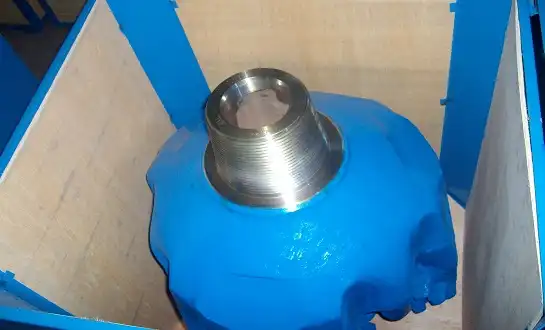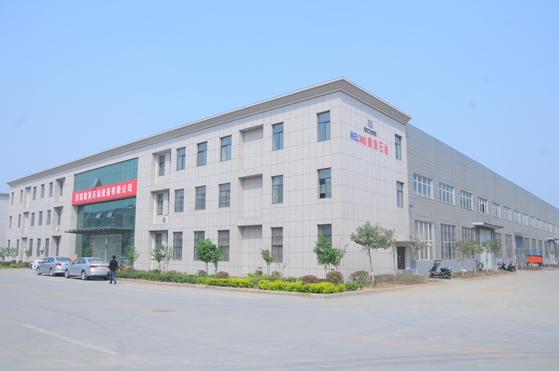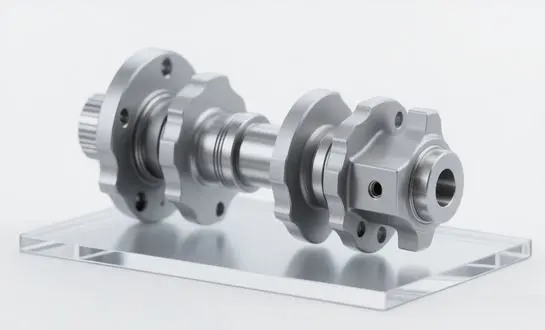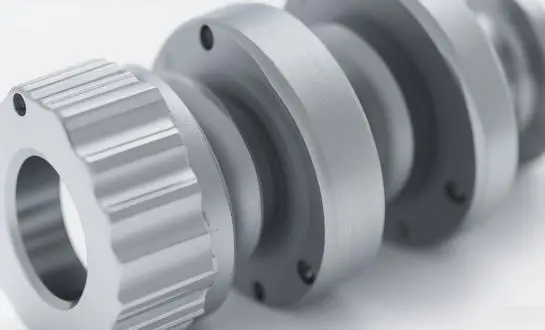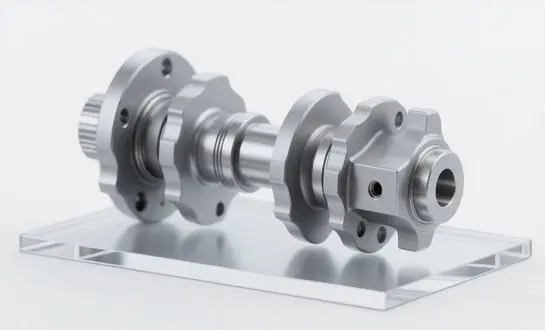Abrasive rocks, which have a lot of sharp, hard bits, can wear down drilling tools quickly. To drill successfully in these conditions, you must first figure out what problems these formations cause and then use methods that are made to fix those problems. When operators focus on new bit materials, optimise drilling settings, and use smart working methods, they can greatly extend the life of their tricone drill bits while keeping penetration rates high.
Understanding Abrasive Formation Challenges
Tricone drill bit wear is one of the special problems that drilling operations encounter when working with abrasive formations. Hard minerals like quartz, chert, or granite are abundant in these formations and may quickly wear out drill bits' cutting structures and bearings.
Characteristics of Abrasive Formations
Characteristics of abrasive formations include:
- A high percentage of quartz, often more than 40%
- Pebbles with sharp corners and angles compressive strengths that may vary
- Possibility of zones with elevated pressure
Tricone drill bits experience faster wear due to these features, which impact the cutting structures and bearing systems. During drilling operations, the abrasive particles grind against the bit components continually, much like sandpaper.
Impact on Tricone Drill Bits
The impact of abrasive formations on tricone bits includes:
- Rapid wear of cutting elements (teeth or inserts)
- Accelerated erosion of the bit body - Increased stress on bearings and seals
- Potential for premature bit failure
Understanding these challenges is crucial for developing effective strategies to mitigate wear and extend bit life. By recognizing the specific wear patterns and mechanisms in abrasive formations, drilling engineers can make informed decisions about bit selection, operational parameters, and maintenance practices.
Advanced Tricone Bit Materials: Durability Secrets
The key to combating wear in abrasive formations lies in the materials used in tricone drill bit construction. Advanced materials and coatings play a crucial role in enhancing bit durability and performance.
Cutting Structure Innovations
Modern tricone bits employ cutting-edge materials in their cutting structures:
- Tungsten carbide inserts with optimized formulations for increased hardness and toughness
- Premium steel alloys for milled tooth bits with enhanced wear resistance
- Advanced hardfacing techniques to protect steel teeth
These innovations significantly improve the bit's ability to withstand the abrasive environment while maintaining cutting efficiency. The use of specialized carbide grades and optimized insert shapes allows for better penetration and longer bit life in harsh conditions.
Bearing and Seal Advancements
The bearing system is critical to the overall performance and longevity of tricone bits. Recent advancements include:
- High-precision roller bearings with improved load distribution
- Sealed and pressurized bearing systems to prevent contamination
- Advanced seal materials resistant to high temperatures and abrasive fluids
These improvements in bearing technology contribute to extended bit life by protecting critical components from the ingress of abrasive particles and maintaining proper lubrication under extreme conditions.
Body and Leg Protection
To combat overall wear, tricone drill bit manufacturers have developed:
- Hardfacing applications on the bit legs and shirttail areas
- Gauge protection features to maintain bit diameter
- Erosion-resistant coatings on the bit body
These protective measures help maintain the structural integrity of the bit, ensuring consistent performance throughout its operational life in abrasive formations.
Optimizing Drilling Parameters for Extended Bit Life
While advanced materials are crucial, optimizing drilling parameters is equally important in reducing tricone bit wear in abrasive formations. Proper management of operational factors can significantly extend bit life and improve overall drilling efficiency.
Weight on Bit (WOB) Management
Careful control of Weight on Bit is essential in abrasive formations:
- Start with lower WOB and gradually increase to find the optimal point
- Avoid excessive WOB, which can lead to accelerated wear and potential bit damage
- Monitor rate of penetration (ROP) in relation to WOB to maintain efficiency
Finding the right balance ensures effective cutting action while minimizing unnecessary stress on the tricone drill bit components.
Rotary Speed Considerations
Proper management of rotary speed is crucial:
- Lower RPM generally results in less wear in highly abrasive formations
- Adjust RPM based on formation characteristics and bit design
- Balance rotary speed with other parameters to maintain optimal ROP
By carefully controlling rotary speed, operators can significantly reduce the abrasive action on the bit while maintaining acceptable drilling rates.
Hydraulics Optimization
Effective hydraulics play a vital role in bit performance and wear reduction:
- Ensure adequate bottom hole cleaning to prevent regrinding of cuttings
- Optimize nozzle selection for proper jet impact and cuttings evacuation
- Monitor and maintain proper mud properties to enhance cutting removal
Proper hydraulics management not only improves drilling efficiency but also reduces wear by minimizing the exposure of the tricone bit to abrasive cuttings.
Drilling Fluid Selection and Management
The choice and management of drilling fluid are critical in abrasive environments:
- Use lubricating additives to reduce friction between the bit and formation
- Maintain proper mud weight to support borehole stability
- Implement effective solids control to minimize abrasive particles in the fluid
A well-designed drilling fluid program can significantly reduce the wear on tricone drill bits while improving overall drilling performance.
Conclusion
A combination of cutting-edge materials, optimised drilling settings, and astute operating techniques is needed to decrease tricone bit wear in abrasive deposits. Drilling operators may enhance bit life, drilling efficiency, and cost-effectiveness by learning about and adapting to the specific problems of abrasive settings.
Using state-of-the-art materials and technology, meticulously controlling operating conditions, and choosing the correct bit for the formation are the three most important factors in achieving success. It is crucial to regularly evaluate and alter drilling operations in response to performance feedback and real-time data in order to achieve best outcomes under difficult abrasive circumstances.
Call to Action
Are you trying to find a way to make drilling in rocks that are quite abrasive more efficient? At Welong, our team of professionals is dedicated to supplying top-notch tricone drill bits that are engineered to endure the most demanding drilling environments. Let us help you maximise drilling productivity and save costs with our sophisticated bit designs, complete technical assistance, and years of industry knowledge.
Contact us today at oiltools15@welongpost.com to learn more about our cutting-edge tricone bit solutions and how we can support your drilling projects in abrasive formations. Let Welong be your partner in achieving drilling excellence.
